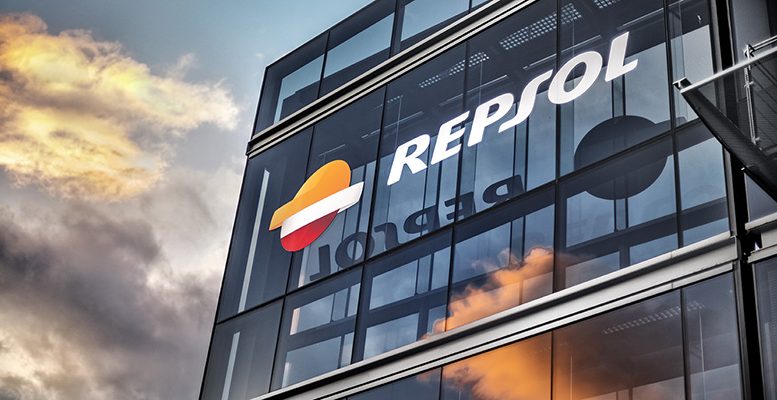Mari Pinardo / Julia Pastor | At the start of this year, Repsol launched an ambitious Strategic Plan to allow the Company to eliminate its debt and weather the storm of low oil prices. The plan includes: divesting non-core assets for a total of 3.1 billion euros via a series of deals, one of which was the possible sale of its Gas Natural stake. The chance came along and on Monday Repsol announced it has agreed to sell 10% of its stake in the gas company for 1.9 billion euros. The operation has been well received by the markets and by analysts.
“The sale of the stake in Gas Natural has had an impact on the strategic plan in the respect that it has speeded up the divestments process. This is going to be completed earlier than expected and Repsol’s financial situation will be normalised in one fell swoop,” says ACF analyst Luis Padrón.
By the end of the first half of this year, the company had made 2.8 billion euros worth of divestments.
“So their target has been amply exceded,” says Renta 4’s Natalia Aguirre. “To get an idea, when Repsol presented its second quarter results cash received represented 16% of net debt.”
“What is clear from these operations is that Repsol can now tackle its financial problem, which was its large debt pile at the start of the year. And furthermore, it can do this against a backdrop of tension in crude prices,” notes Sonia Ruiz de Garibay from GVC Gaesco.
The exogenous factor
Apart from the commitment to improving its balance sheet, the main exogenous factor affecting the company seems to be working in Repsol’s favour. Crude prices, which suffocated the company in 2014-2015, seem to be fast recovering.
With Brent at 47 USD/barrel and WTI at 44 USD, the majority of analysts believe that it will be difficult for prices to drop back to the alarming level of 27 usd/barrel.
“There is a clear upward trend in oil prices,” Luis Padrón says. “There is no way we are going to return to the low prices we saw in the past months.”
Ramón Carrasco, analyst at Bankinter, also has a positive view:
“We are moving in a range of 40-50 euros/barrel, which is very wide.” Bankinter is predicting 45 euros/barrel by year-end.
An improved target price
The well-considered plan to divest non-core assets and the favourable headwind of oil prices have caused many analysts to improve their target price for the company as well as its year-end outlook.
Citi and UBS broke the ice and raised their target price for Repsol, the first from 11 euros to 12 euros and the second from 12,25 euros to 12,50 euros. And many more experts have “congratulated” the company with more positive opinions.
“Repsol has ridden the storm well. Coming from very low levels, the stock price could rise to as high as 13-13,50 euros/share. That wouldn’t be excessive,” says Sara Carbonell from CMC Markets.
ACF previously had a positive stance on Repsol, and now has a Buy recommendation and a target price of 16 euros/share.
“We are positive mainly because of the company’s strategic plan. This is basically focused on normalising its debt and making its business more profitable thanks to the trend in its downstream division which will partially offset weakness in upstream,” Luis Padrón says.
GCV Gaesco’s target price for Repsol is 15,50 euros and it is maintaining its Buy recommendation.
“It’s a stock which has gone up a lot over this year. But it has performed well in a very difficult environment, and coming from an extremely bad year. So we think the stock price deserves the revaluation,” says Sonia Ruiz de Garibay.
And if the oil producers reach an agreement?
On September 26th, OPEC will hold an informal meeting prior to its official meeting at the end of November. These gatherings of the oil producing countries have an important impact on oil prices. Even just hinting at the possibility, however slight that might be, of an agreement over production levels and adjusting the excess of supply to demand already generates capital gains for companies like Repsol which have a close correlation with crude prices.
“Expectations of an agreement are very high. For the time being, we have to value the agreement reached between Russia and Saudi Arabia and hope that other producing countries will sign up,” says Renta 4’s Natalia Aguirre.
Luis Padrón is more pessimistic. He believes that the markets are already discounting that there will be no agreement at the OPEC meeting.
“There is always a lot of talk about good intentions, good projects, including many ideas on how to improve crude prices. But the reality is that up to now we have not seen anything which has promoted important structural changes. There is still an excess of production and demand is not growing enough to absorb the stock and excess supply. Companies have reduced their capex, there is going to be a lower level of production and this gives rise to an adjustment in supply and demand in the medium-term,” says Padrón.
Ramón Carrasco also sees few possibilities of an agreement.
“It’s great that they are talking, but in reality they are producing a lot of oil. The countries which are most critical want to put a freeze on production, but the question is at what level? Other countries want to cut production, but the same question arises. They are all very different countries, with different interests and it is very difficult for them to reach an agreement.”





